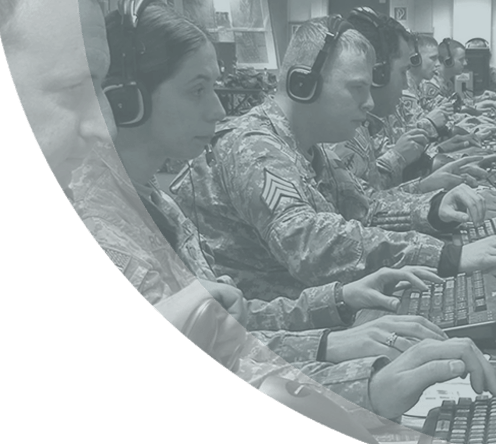Why Veterans Are More Goal-Oriented
Written by Veterans Education Project, a partner of CollegeRecon.
Veterans, and other non-traditional students, generally tend to be significantly more goal-oriented than traditional students. Having spent some number of years out in the world and having experienced the limitations of living life without education and without credentials, non-traditional students tend to focus on getting skills, certifications, and degrees that have an immediately obvious use. This can have both advantages and disadvantages. The greater drive and focus of non-traditional students often lead to higher grades and graduation rates, and they have immediately usable skills upon graduation.
Developed “Executive Management Centers”
Non-traditional students, and especially veterans, are often much more willing to grind on repetitive practice of component skills, to really master subjects which they are studying, such as memorizing paradigms for a language class or doing problem-sets for a math class.
It is well known that the human brain doesn’t fully finish developing until somewhere in the age-range of 25 to 30, which means that traditional students who begin their college years at the age of 18 or 19 generally have less absolute brainpower than non-traditional students who are entering the classroom after some number of years in the world. Especially, the “executive management center” of the brain, which is largely responsible for activating or inhibiting other parts of the brain, tends to be one of the last parts to develop. This means that older students are simply better at forcing themselves to use their brains even when they are “not in the mood” to do so.
Pure Academic vs Immediately Practical
On the other hand, non-traditional students, and especially veterans, are often much less interested in studying the pure academic fields which underlie and support applied fields. This can lead to acquiring skills that are immediately practical, but risk becoming redundant in the medium to long term.
Students who study pure and abstract versions of the same subject are better able to adapt to changes in industries and get more out of their education. For instance, student who studies pure mathematics learns fundamental truths which remain true for all time, while a student who studies for a niche engineering practice may become obsolete before they can retire.
Veterans and other non-traditional students are often much less willing to entertain more extreme and abstract theorizing, which traditional students are often prone to. Sometimes, these wild flights of fancy are just wastes of time, with no bearing on reality and having a hard-headed interlocutor who can say “That’s just absurd!” helps everyone to use their time more productively.
However, it can be precisely that type of abstract and wild theorizing that can lead to the greatest breakthroughs. For instance, Plato’s ‘Allegory of the Cave’ can be useful tool when debating the nature of politics and justice, but it will not land you a job on Capitol Hill.
Veterans Act as a Counterweight
Veterans and other non-traditional students, in their preference for applied sciences and practical skills, provide a valuable counterweight to traditional students who are often far more interested in pure and abstract subjects. However, it is in the interest of the school to ensure post-graduation success and thus should guide Veteran Students on how to prolong the shelf-life of their degrees.
by Veterans Education Project
For more info on Veterans Education Project, please go here.

